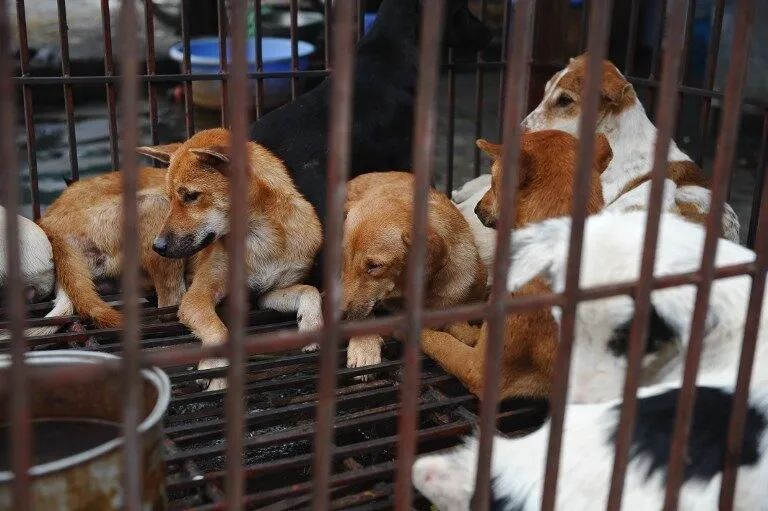China, with its rich and diverse culinary culture, has become a focal point of debate regarding the consumption of dog and cat meat. Although this practice is part of the traditional cuisine in some regions, eating dog and cat meat faces strong opposition from the international community and animal rights organizations. Concerns about ethics, health, and human rights raise significant questions about whether to maintain or end this habit.
Current State of Dog and Cat Meat Consumption
The consumption of dog and cat meat in China is not merely a culinary habit but is considered a part of the culture in certain areas. Every year, millions of dogs and cats are slaughtered to provide meat for festivals, restaurants, and markets. The Yulin Dog Meat Festival is a prominent example of a controversial event worldwide. Held annually in Yulin, Guangxi province, this festival sees thousands of dogs killed and consumed over a week-long period.
Ethical Issues
The consumption of dog and cat meat raises serious ethical and humanitarian questions. Dogs and cats have long been regarded as loyal companions to humans, and slaughtering and consuming them is seen as cruel and inhumane. Animal rights organizations have vehemently criticized the killing of dogs and cats, calling for the Chinese government to completely ban this practice.
Additionally, the theft of dogs and cats from households for meat is a significant issue. Many families lose their pets to organized dog and cat theft rings that operate openly and brazenly. These animals are often kept in deplorable conditions, beaten, and brutally slaughtered, causing unimaginable pain and terror.
Health Concerns
The consumption of dog and cat meat also poses various health risks to humans. These animals are often not adequately health-checked or vaccinated, leading to the risk of transmitting infectious diseases such as rabies, parasites, and other dangerous illnesses. The slaughter and processing of dog and cat meat in unsanitary conditions further increase the risk of food poisoning and bacterial diseases.
International Community Response
The international community has reacted strongly against the consumption of dog and cat meat in China. Many countries and organizations have called on the Chinese government to end the slaughter and consumption of dog and cat meat. Awareness campaigns on this issue have been widely launched, garnering support from millions around the globe.
Organizations such as Humane Society International (HSI) have conducted numerous rescue efforts, saving thousands of dogs and cats from slaughterhouses and finding them new homes. HSI has also worked with lawmakers and activists in China to promote animal protection policies and advocate for the prohibition of dog and cat meat consumption.
Efforts for Change from China
In recent years, China has made some progress in changing the consumption habits regarding dog and cat meat. Some cities, such as Shenzhen and Zhuhai, have enacted bans on the consumption of dog and cat meat, creating positive precedents for other regions.
The Chinese government has also implemented measures to reduce the consumption of wild animal meat, especially following the COVID-19 pandemic. However, the implementation and enforcement of these measures still face challenges due to long-standing eating habits and opposition from certain segments of the population.
Potential Solutions
To effectively address this issue, there needs to be close cooperation among animal rights organizations, the government, and the community. Potential solutions include:
- Education and Awareness Raising: Strengthening education about animal rights and the importance of protecting dogs and cats. Educational programs can help change public perceptions regarding the consumption of dog and cat meat.
- Enacting and Enforcing Strict Laws: The government should enact and enforce laws banning the slaughter and consumption of dog and cat meat. Severe penalties should be applied to deter violations.
- Promoting Alternative Food Options: Encouraging the public to use plant-based products as alternatives to meat while promoting the development of the vegetarian and sustainable food industry.
- Supporting Animal Protection Organizations: Providing financial and technical support to animal protection organizations, enabling them to carry out rescue and educational activities.
Conclusion
The consumption of dog and cat meat in China is a concerning issue that relates to various ethical, health, and human rights aspects. While there have been positive strides toward changing these habits, many challenges remain. Close collaboration among stakeholders and a strong commitment from the community will be essential to completely eliminate the consumption of dog and cat meat, ensuring a better future for both animals and humans.



